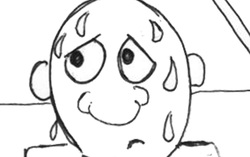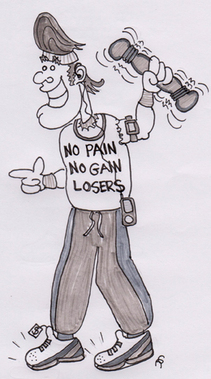
My neighbor has been through cancer treatment too. It’s been many years, and you’d never know it to look at him. After I got better, he shared with me how hard it was to look at the changes in me as I went through my chemo and radiation. Watching me dwindle “brought it all back,” he said.
I know what he means. Each time a newly-diagnosed woman comes to my cancer support group I remember – my fear, my vulnerability. What I share with the newbie varies. I realize that everyone’s experience and how they cope is different, so I only say what was true for me - as I can best remember it.
Now, almost three years out, how I remember has changed. I didn’t realize that until last week, when in front of my cancer friends these words popped out of my mouth. “I miss the old Mary-Jo.” I hadn’t known that before. I couldn’t believe I admitted it, but the nostalgic sentiment felt real.
“Who was she?” Our leader asked.
“She was a woman who wasted time and energy on things she thought she controlled. She tried to be present, but she was busy, distracted. She complained and criticized too often. She was pro-active about preventative health care, and she believed that she would never belong to this club. She was simpler. She wasn’t afraid. She didn’t feel vulnerable. She had long blond hair,” I finished.
One of the gifts of cancer is that you gain perspective on your existence. Cancer survivors say this all the time, and they mean it. Afterwards, no days are ho-hum. No problem is earth shattering.
I feel as if I’m attached to a gossamer tether, delicate, but very strong. It doesn’t limit me. It grounds me. I can stretch just so far, whirl around aimlessly just so many times, and then it quickly pulls me back to my center. The only time I significantly lose my moorings is when I go for my medical visits. Whether it’s a routine follow-up or a yearly Pet/CT scan, just about anywhere where white coats are, I feel that odd disconnect coming on. I forget to be grounded. I become hyper-vigilant. And if I have to wait for the results of any tests, that “brings it all back.”
In a 2009 article entitled Post-Traumatic-Stress Disorder Related to the Cancer Experience in Oncology Nursing Forum, Nancy Jo Bush, an oncology nurse practitioner with a specialty in clinical psychology describes her “nightmare” when, after years of caring for others with cancer, she herself was diagnosed. “Although we usually think of Post Traumatic Stress Disorder, PTSD, as being a post-combat illness,” she says, “it is common among cancer survivors…For the cancer survivor fearing recurrence, hyper-vigilance is common, and waiting for the results after follow-up examinations, blood work and scans often precipitates high anxiety. Patients with cancer, like combat soldiers, experience a series of threats followed by long periods of passive vigilance interspersed by intervals of high arousal.”
Recently, a doctor, (not one who was part of my cancer team) used the “C” before sending me for an ultrasound for a new symptom. Despite several phone calls (I’m very good at advocating for myself) I waited for almost three days to hear that I was fine. In the meantime, I whirled about in my dread. Sometimes, I felt sane and resigned to any outcome. Other times I felt positively confident that everything was fine. Then, I’d slip into my high anxiety again.
A psychologist friend, who knew the “old Mary-Jo” and supported me through my treatment, reminded me that it was happening again. It?
My post-cancer PTSD.
She suggested I “stay with the feeling for ten minutes. Then ask myself how I was different now? What did I have in me that was a new skill that I’d learned during my cancer experience that could help me cope?”
I did what she suggested. I didn’t like the ten minutes, but I sat with my weirdness. Like any pain, anxiety makes it worse. So, I breathed and paid attention to what I was feeling while the clock ticked. In the end, I knew what was different about “this Mary-Jo.”
She’s been tested, and she's still here. She can handle difficult things, and she believes there is just as good a chance that an outcome can be positive as there is that it can be disastrous. While I thought I remembered my neighbor and what he told me when I was my sickest.
“You don’t believe it now, but I’m telling you, you won’t always feel like this.”
I don't.

 RSS Feed
RSS Feed
